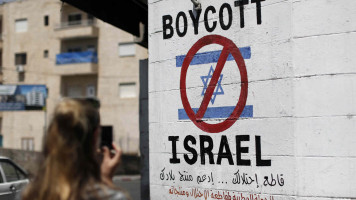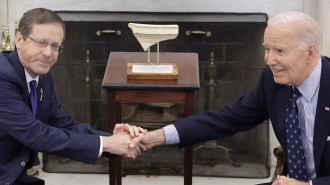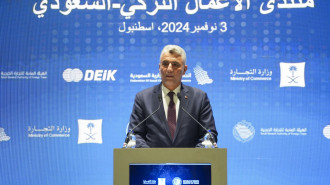Myanmar leader Aung San Suu Kyi stripped of honorary Canadian citizenship, over Rohingya crisis
Canada's parliament voted to strip Myanmar's controversial leader Aung San Suu Kyi over her role in the Rohingya crisis.
Nobel Prize winner and pro-democracy campaigner won the rare honour in 2007, but since coming to power her reputation has become tarnished by her refusal to condemn the military's massacre of the country's Rohingya Muslims minority.
Ottawa last week declared the killings, rape and torture of Rohingy as a genocide.
"In 2007, the House of Commons granted Aung San Suu Kyi the status of honorary Canadian citizen. Today, the House unanimously passed a motion to remove this status," said Adam Austen, spokesman for Foreign Minister Chrystia Freeland.
Myanmar's brutal campaign against the minority have forced 700,000 Rohingya Muslims from their homes to neighboring Bangladesh.
The conditions of the camps they live in are said to be dreadful but the refugees are fearful of returning to mainly Buddhist Myanmar despite a repatriation deal.
Refugees have given accounts of extrajudicial killings, sexual violence and arson, which the military have denied.
The United Nations on Thursday set up a panel to prepare indictments against Myanmar's army chief and five other top military commanders for crimes against humanity.
Suu Kyi heads a democratically-elected government but is shadowed by powerful generals.
Austen cited Suu Kyi's "persistent refusal to denounce the Rohingya genocide" for the withdrawal of the Canadian honour, which is symbolic and comes with no special privileges.
"We will continue to support the Rohingyas by providing humanitarian assistance, imposing sanctions against Myanmar's generals and demanding that those responsible be held accountable before a competent international body," he added.
Only five other people have been granted honourary Canadian citizenship, including the Dalai Lama, girls education advocate Malala Yousafzai and Nelson Mandela.







 Follow the Middle East's top stories in English at The New Arab on Google News
Follow the Middle East's top stories in English at The New Arab on Google News


